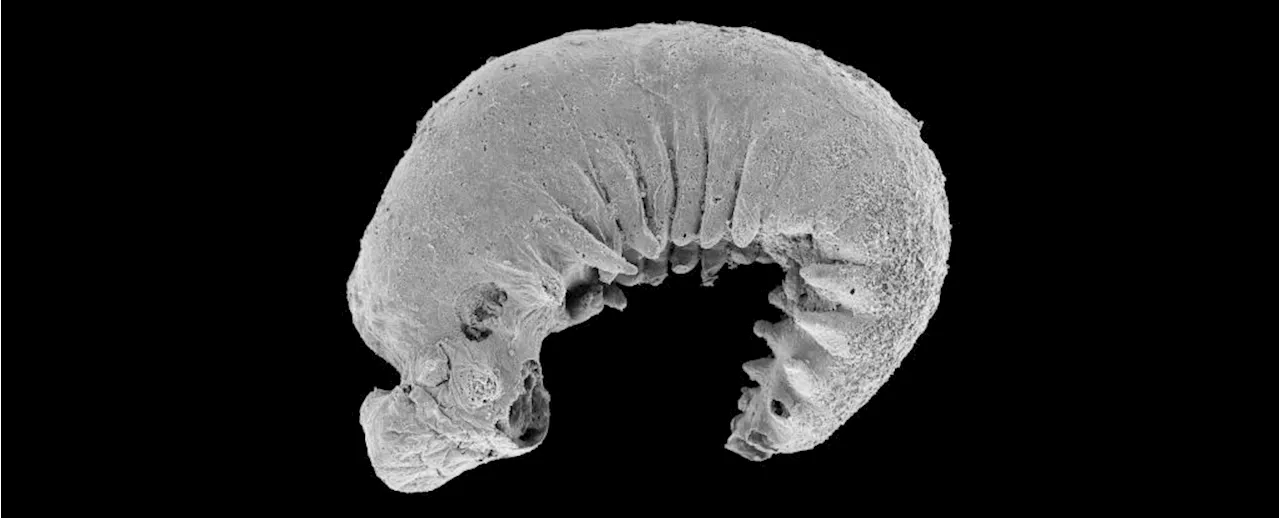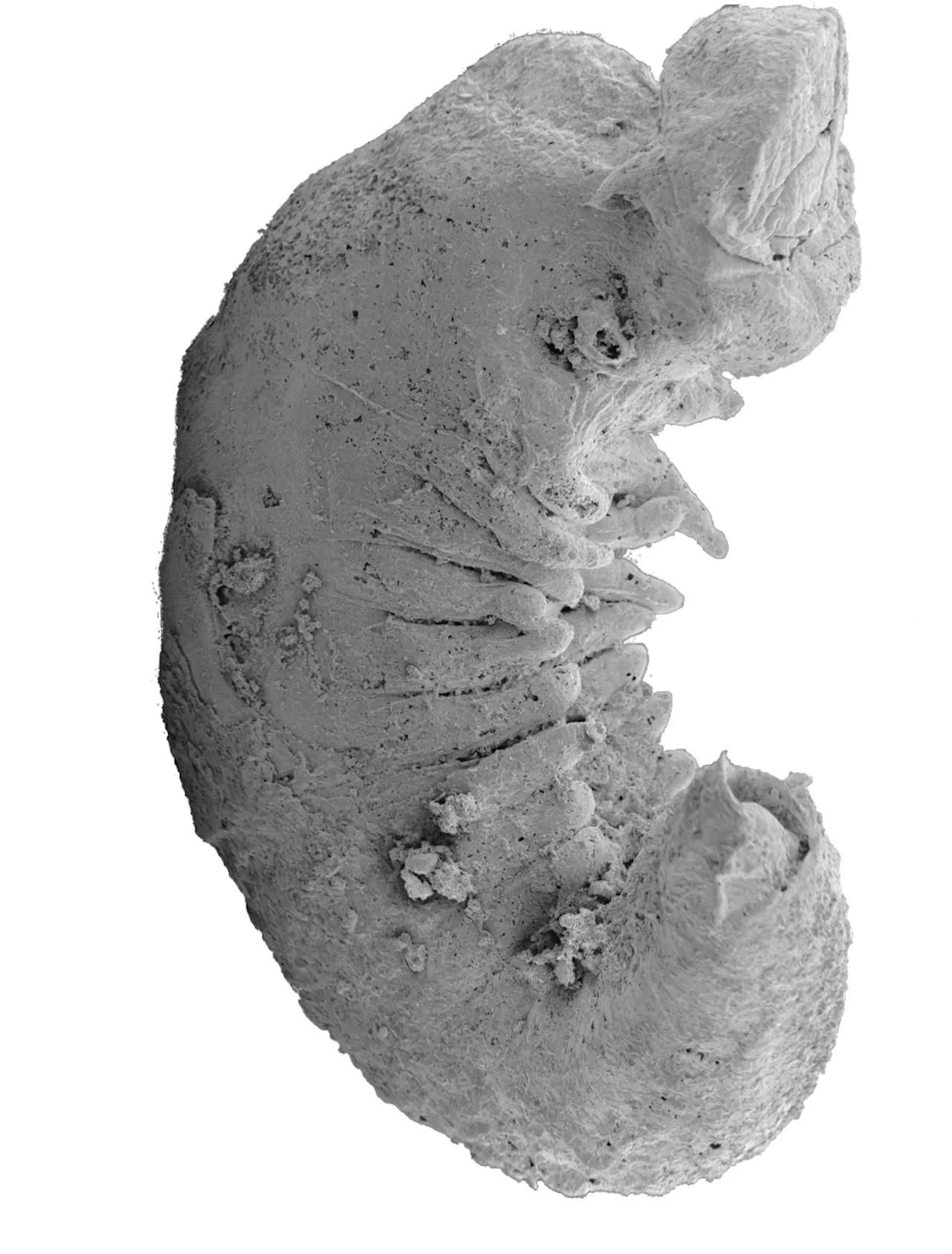Scientists discovered a 520-million-year-old fossilized larva with brains and guts intact, offering unprecedented insights into early arthropod evolution.
A remarkable fossilized larva has been discovered by scientists with its brain and guts still intact. The fossilized creature is one of the earliest ancestors of a group known as arthropods, which includes insects, crabs, and lobsters. A unique window into the past, the ancient critter has allowed experts a chance to better understand evolutionary links between the arthropods of the past and those of the present day.We know what fossils look like.
According to the press release, the structures observed within the creature—which were studied via 3D images generated from scans made using a technique known as synchrotron X-ray tomography—include a brain, “digestive glands, a primitive circulatory system and even traces of the nerves supplying the larva’s simple legs and eyes.
United States Latest News, United States Headlines
Similar News:You can also read news stories similar to this one that we have collected from other news sources.
 ‘Jaw-dropping’: Scientists find intact brain of 520 million-year-old worm fossilThis fossil—from one of the first lineages of arthropods—is a vital piece of the evolutionary puzzle that led to insects, spiders, and crabs.
‘Jaw-dropping’: Scientists find intact brain of 520 million-year-old worm fossilThis fossil—from one of the first lineages of arthropods—is a vital piece of the evolutionary puzzle that led to insects, spiders, and crabs.
Read more »
 520-Million-Year-Old Fossilized Larva Found With Preserved Brain And GutsThe Best in Science News and Amazing Breakthroughs
520-Million-Year-Old Fossilized Larva Found With Preserved Brain And GutsThe Best in Science News and Amazing Breakthroughs
Read more »
 520 Million-Year-Old Larva Fossil Reveals How Insects EvolvedA Youti yuanshi fossil shows the role fledgling nervous systems played in the evolution of arthropods.
520 Million-Year-Old Larva Fossil Reveals How Insects EvolvedA Youti yuanshi fossil shows the role fledgling nervous systems played in the evolution of arthropods.
Read more »
 Incredibly Rare 520-Million-Year-Old Worm Fossil Solves Ancient Evolutionary MysteryScience, Space and Technology News 2024
Incredibly Rare 520-Million-Year-Old Worm Fossil Solves Ancient Evolutionary MysteryScience, Space and Technology News 2024
Read more »
 520-million-year-old worm fossil solves mystery of how modern insects, spiders and crabs evolvedA new study led by researchers at Durham University have uncovered an incredibly rare and detailed fossil, named Youti yuanshi, that gives a peek inside one of the earliest ancestors of modern insects, spiders, crabs and centipedes. The study is published in the journal Nature.
520-million-year-old worm fossil solves mystery of how modern insects, spiders and crabs evolvedA new study led by researchers at Durham University have uncovered an incredibly rare and detailed fossil, named Youti yuanshi, that gives a peek inside one of the earliest ancestors of modern insects, spiders, crabs and centipedes. The study is published in the journal Nature.
Read more »
 New toll rates on Seattle's 520 bridge begin August 15Western Washington commuters will soon see increased tolls when traveling across the State Route 520 Bridge.
New toll rates on Seattle's 520 bridge begin August 15Western Washington commuters will soon see increased tolls when traveling across the State Route 520 Bridge.
Read more »
